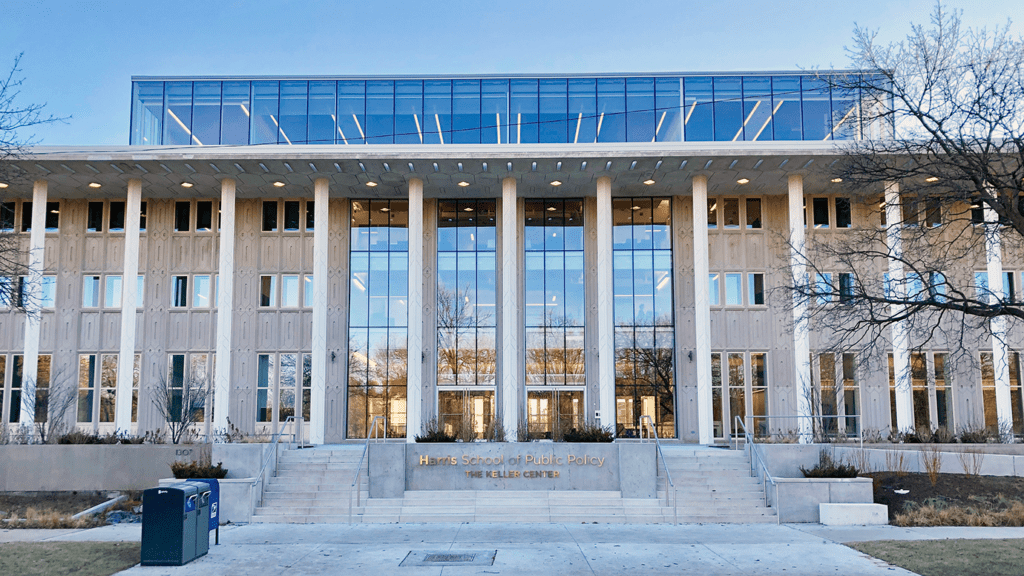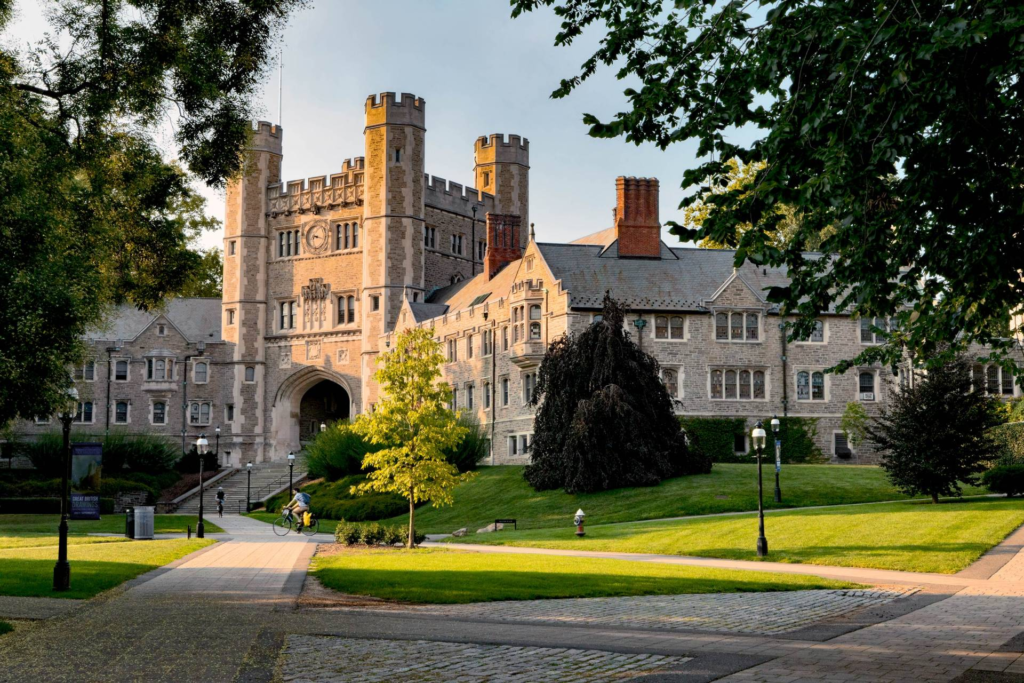Are you interested in making an impact at the intersection of public and private sectors? Perhaps, for example, you enjoy hands-on management experiences and analytical policymaking or are passionate about consulting as well as public service.
If so, you might want to consider getting a dual degree with either an MPA/MBA or an MPP/MBA.
If you are interested in combining public affairs with business, a dual degree can shave a year or two off of your graduate studies versus completing the two degrees consecutively. The combination of a public policy and business curriculum allows students a variety of career opportunities in both the public and private sectors. Not least, earning a dual degree will catapult you into the job market with two master’s degrees rather than just one, giving you a distinctive edge, especially if you’re looking to break into the competitive consulting market.
In order to help you better understand the scope of a dual degree program, we’ve compiled some important facts to consider before you start applying.
What exactly are MPA and MPP degrees?
A Master of Public Administration (MPA) degree can help students seeking a career in public service, community, government and leadership positions, including managing nonprofits.
Covering areas like finance, grant procurement, urban planning, law, ethics, workforce development, conflict resolution, and more, this degree provides tools to solve real problems through the implementation and enforcement of policies and public programs. This degree is more action-focused than an MPP, emphasizing management and implementation.
Demand for MPAs is growing as the number and urgency of societal problems increase throughout the world. Coupled with an MBA, the MPA can help graduates find leadership positions in government, the private sector, or nonprofits.
A Master of Public Policy (MPP) degree helps students who want to learn how to perform analysis of public problems in areas such as the environment, energy, health, urban, economics, and education. Unlike the MPA, the MPP emphasizes policy research and evaluation over front-end leadership.
MPP degree-holders usually conceive and suggest solutions using research and data. This is a specialized degree that can help students find positions as policy advisors, social researchers, civil service administrators, diplomats, and more.
Types of dual degree programs
One of the main benefits of pursuing a dual degree is that you can complete both degrees in less time than if you would complete them consecutively. There are two main categories of dual degrees which are completed through either concurrent programs or complementary programs.
Concurrent programs
In a concurrent program, you will pursue both degrees at the same time through the same university or two different universities that have a partner program. You will have to complete your studies in each program at the same time, essentially doubling your studies. However, keep in mind that this option essentially halves the amount of time it would have taken for you to complete the same degrees separately.
A big benefit of this is that rather than spending four years in graduate school accruing debt, you can complete both degrees in just two to three years and get out into the job market with a powerful set of credentials. It’s important to note that you’ll need to be accepted into each of these programs individually — being accepted into one doesn’t necessarily mean you’ll be accepted into the other.
Complementary programs
Complementary programs are organized a bit differently; while they normally take around three years to complete, each topic is generally covered separately for one year each, then combined during the last year.
This option often takes longer than concurrent programs, but still reduces the amount of time you would normally spend pursuing both degrees separately. If you are someone who benefits from focusing on one topic at a time, you may want to consider this option so you can get the most out of your studies.
Best Dual MPA/MBA, MPP/MBA Programs
As MPA/MBA and MPP/MBA programs gain popularity, more and more schools are offering them. In order to get the most out of the dual degree experience and be competitive in the public policy/consulting market after graduation, it’s important to earn a degree from a top institution.
To help you decide if one of these programs is right for you, we’ve compiled a list of the best schools for MPA/MBA, MPP/MBA dual degrees.
Harvard Kennedy

Source: hks.harvard.edu
Harvard Kennedy School offers both MPP and MPA options to combine with an MBA. The program has fostered the success of students since its inception in 2007 in recognition of the increasing need for professionals with strong management skills who can also help to shape solutions to global problems.
Their three-year dual degree program gives students the opportunity to have two summer internships, encouraging hands-on experience. Also, Harvard’s famous case study method, often lauded as one of the most effective MBA teaching tools, helps prepare students to tackle real-world problems.
Additionally, a large percentage of Harvard MBA students go into consulting after graduation (24%), second only to the number who go into financial services (34%). This means that students from this program are on track to finding careers in global organizations that deal with public policy, giving alumni a valuable network to help them find opportunities after graduation.
University of Chicago Booth/Harris

Source: uchicago.edu
University of Chicago’s dual degree program is completed in three years. With a strong emphasis on science, data and impact, The Harris Program of Public Policy is a well-established program since 1977 that values diversity and a global perspective with students from 52 countries represented among their alumni.
Harris’ five Urban Labs (Crime, Education, Energy & Environmental, Health and Inclusive Economy) offer excellent opportunities for students to learn how effective public policies are formulated in partnership with civic and community leaders.
To understand more about the dual degree at the University of Chicago, read this entry in their student blog.
Columbia University

Source: columbia.edu
Columbia’s School of International and Public Affairs (SIPA) offers three-year dual degrees with their Business School. Students are required to complete an internship and to have proficiency in a language other than English in order to complete the SIPA program.
Columbia is a school that prizes diversity, therefore this program offers particular value for candidates looking for both a diverse group of students and a curriculum that examines race and racism. If your career goals involve policies that support inclusion, this may be just the program for you!
To read more about the dual degree program, check out this student interview.
Princeton University

Source: princeton.edu
Princeton’s three-year dual MPA/MBA program is run in partnership with Stanford Graduate School of Business (GSB). It has a focus on four main areas: International Relations, International Development, Domestic Policy, and Economics and Public Policy. The MPA program is a two-year program with approximately 70 students admitted each year.
Princeton also offers a unique Joint Degree Program (JDP) in Social Policy. This joint degree program is a Ph.D. program run between the Princeton School of Public and International Affairs and the Politics, Psychology, Population Studies, and Sociology departments. In this program, students complete a Ph.D. in one of the social sciences while also doing coursework on global issues of economic insecurity and inequality.
University of Oxford

Source. oxford.ac.uk
Oxford offers a two-year dual degree MBA/MPP program in conjunction with the Blavatnik School of Government. The first year focuses on the MPP program which students may personalize depending on their professional goals. The second year focuses on Oxford’s MBA program offered through their Said Business School.
Oxford’s MBA component includes a unique Entrepreneurship project where you will develop and present a business plan to a panel of venture capitalists. The MBA program also gives students access to Oxford’s Global Opportunities and Threats (GOTO), a community dedicated to actively solving global problems.
The benefits and challenges of getting a dual degree
Whether you’re looking at a concurrent or complimentary program, there are obvious and not-so-obvious benefits and challenges to earning a dual degree. We list some of the most important ones below.
Benefits
- Saving on tuition and living expenses. Generally, you’ll be able to earn a dual degree in two to three years, whereas completing the degrees separately would take you four or more years. That means you’ll save on tuition and living expenses by completing the degrees more quickly.
- Faster job market entry. In addition to saving on tuition and living costs, you’ll be able to enter the job market more quickly and start earning a salary earlier than if you pursued each degree separately.
- Maximized expertise. For those who are truly passionate about social impact, the powerful combination of an MPP or MPA and MBA shows your dedication and focus to your cause. While these types of programs are intense, they will show future employers and partners that you care about your area of focus and are driven to truly make change.
- Higher salary. Because you will have extra credentials, you’ll be in a position to negotiate a higher salary than someone who pursued just one master’s degree.
- Double networking advantages. An important part of graduate school is creating a professional network that you can leverage during your career. When you complete a dual master’s, you’ll have double the networking power — that gained from the MPA/MPP and the MBA programs you’re pursuing.
Challenges
- Intense studying. The biggest challenge of completing a dual MPA/MBA or MPP/MBA degree is that you’ll have a lot of studying to do, especially if you’re pursuing a concurrent program. Make sure you’re up for the task. Creating study groups with other students in the program and asking for help when you need it can ensure you weather this challenge in stride.
 (Source)
(Source) - Cost. Your dual degree will cost more than a single degree. That’s part of the reason why it’s important to be sure that a dual degree will truly serve your career goals. Of course, it is less than pursuing two degrees separately, but make sure you are sure that it is right for your future before deciding to commit.
- Is it necessary? Many people work in nonprofit management and public service without having a degree in these areas. Take the time to consider if earning a dual degree, with all the costs and studying it will require, is necessary for you to get the job you want. Contact some organizations and talk to their hiring personnel about their qualification requirements. In some cases, you may find that real-world experience speaks louder than degrees for the types of positions and roles you wish to occupy.
The MPP/MBA, MPA/MBA Dual Degree Application Process
Once you’ve decided that a dual degree is right for you, then you should be prepared to do your best on the application. Be aware that when you apply for dual degree programs, you will be applying to each program separately. There is no guarantee that you will get into both. The same is true of scholarships — you may be given a scholarship by one program, but not by the other.
The application process for dual degrees will vary depending on the institutions you’re applying to, so be sure to carefully read all instructions and heed expert advice in order to increase your chances of acceptance. But, as a rule of thumb for the MPA/MBA, MPP/MBA dual degree, you’ll want to particularly highlight:
- Any relevant professional experience you have in public service or nonprofit management or data analysis and policy adaptation that supports your interest in pursuing a dual degree.
- Your ability to successfully focus on, organize and complete complex studies or tasks that speak to your likelihood to succeed in the dual degree program. Do you have recommenders who can attest to this?
- Your medium and long-term career goals would be specifically supported by a dual degree in your Statement of Purpose. This is particularly valuable to the admissions committees who want to see not only that you can complete a dual degree but that they are admitting a community of students whose career trajectories will employ both degrees, further strengthening the merit of their programs.
Successfully navigate your application process
Crafting a successful application for not just one but two programs requires a significant amount of time, energy, and understanding of what the school’s adcom is looking for. This is why so many applicants choose to seek support from experts in drafting, writing, and editing their applications.
The experienced staff at Ellin Lolis Consulting is here to help you successfully navigate the application process for your dual MPA/MBA, MPP/MBA degree.
If you’re ready to take the next step towards your dual degree dream and get support from a winning team of consultants with your application, work with us today!
Real MBA Essays That Got People In
School-specific sample essays that got our clients accepted






